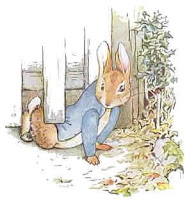As a teenager, I would ask my mom if I was ugly every six months or so. Probably less than that. The question was usually coupled with, "Will I ever have a boyfriend?" or "Am I going to be alone for the rest of my life?"
A pretty rich line of worries coming from a 14-year-old, I know.
My mom was never one to tell me I was beautiful -- she's my mom, after all. I'm beautiful to her, I guess, and that's that. (Yes, I'm putting words in her mouth, but you get my point.) She basically rolled her eyes at the series of self-obsessed, incredibly vain and short-sighted questions that followed. She continues to do this a decade later.
But what's so bad about ugly? What is ugly, after all?
This is a blog about books, as I insist on writing every time I get in front of my computer. But two wins for
Ugly Betty earlier this week at the Golden Globes can't be ignored by a pop culture enthusiast.

Plus, I love that show. I love America Ferrera, I love Salma Hayek for putting it on TV, and I love that a girl with horrifying taste in clothes, a thick waist and bad hair goes out on her own limb every single day. After all, don't we all suffer from some degree of horrifying taste in clothes, thick waists or bad hair?
But the thing is, I still don't want to suffer from these things. I covet overpriced
Balenciaga, I happen by a gym every once in awhile with the dream of having abs, and I curl, straighten or pin my hair to the closest perfection I can create. I know that society has adopted an "
unfair, unrealistic definition of beauty" -- and I accidentally adopted it too.
Since the first time we hear the tales of Cinderella or the Ugly Duckling, most little girls dream of the day they, too, will break out of their ugly shells or transcend rags.
The modern (romance) author often adopts a similar story line -- girl is dumpy and ugly in high school, leaves small town, gets gorgeous, returns to small town, makes high school crush drool, finds out high school crush was a loser despite being hot, discovers geeky next-door-neighbour-turned-rich-hot-tycoon is actually the love of her life, gets married, lives happily ever after.
Or something like that.
In a typical romance novel, a physical description of the protagonist comes early, and it comes from the point of view of the male love interest, not the woman herself.
Take this example, from
Julie Garwood's
Guardian Angel (1990, page 6)
:"His heart started slamming a wild beat and he couldn't seem to catch his
breath.
She did look like an angel. Caine didn't want to blink, certain his vision
would vanish into the night if he closed his eyes for just a second or
two.
She was an incredibly beautiful woman. Her eyes captivated him. They were
the most magnificent shade of green...."
I'll spare you the moment he catches sight of her bosom. The book -- which, yes, I do own -- is set in the 1800s. One set in the 1990s or early 2000s would mention her silky long hair, which she tosses over her shoulder as she climbs into a cool car of some sort, then puts easy rock on the radio.
I don't know why.
There are exceptions to the rule, though, and not all in the sometimes hyper-academic world of
CanLit.
Tilda Goodnight is the female protagonist of Jennifer Crusie's
Faking It (2002)
. She's chubby and unfashionable with, apparently, a great mouth. Having read the book a couple years ago, I quickly skimmed the opening chapters again tonight to see if I could find an actual description of Tilda's body and face, but the sense of her roundness comes from her own sense of self. And her total disdain for women who are beautiful: gorgeous, manicured women are generally evil; accidentally beautiful women are scatter-brained and not altogether smart.
Like most of us, Tilda would probably dub herself ugly but for a few saving graces. Davy Dempsey, her partner in crime, notes the softness of her body compared to most other women's angular bits and the beauty of her mouth. Oh, yeah, and I'm fairly certain he fits her clothes....
Between art thievery and chasing bad guys, I think Tilda might have a moment for Ugly Betty. A campaign to actually be ugly, though? Might be a little bit too warm and fuzzy for her. Like those
Dove commercials that are supposed to make us love ourselves in white underwear and loose flesh.


 I had to stand outside for three hours today.
I had to stand outside for three hours today.


